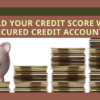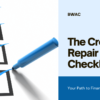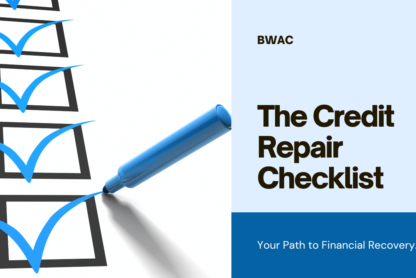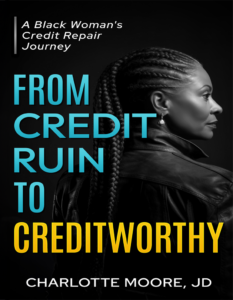Establishing and maintaining a good credit score is crucial for achieving important financial goals like getting approved for loans, credit cards, mortgages, rental applications, and even jobs or cell phone plans. If you’re starting out with no credit history or need to rebuild your credit due to past mistakes, opening a secured credit account can provide the foundation for improving your credit score over time.
What Are Secured Credit Accounts and How Do They Work?
A secured credit account requires an upfront security deposit that serves as collateral for the lender in case you fail to repay what you borrow. Secured credit cards and secured loans are two common types of secured accounts.
With a secured credit card, your credit limit is usually equal to the deposit you provide. You use the card just like a regular credit card, and the lender reports your payment activity to the major credit bureaus. If you pay on time and keep balances low, this builds positive credit history.
Secured personal loans also require collateral, which the lender can seize if you default. By making timely payments, you demonstrate responsible credit management.
The main advantage of secured credit is that it’s accessible even with bad credit. The deposit reduces default risk for lenders. Here’s a comparison of key features:
| Secured Credit Card | Secured Loan |
|---|---|
| Credit limit equals deposit amount | Loan amount equals deposited collateral value |
| Monthly payments typically 2-3% of balance | Fixed monthly loan payments |
| Useful for everyday purchases | Useful for large expenses like medical bills |
| Builds revolving credit history | Builds installment loan payment history |
Top 6 Benefits of Secured Credit Accounts
Responsibly using a secured credit account offers several benefits that can improve your credit score over time:
1. Establish Credit History
For those new to credit, a secured credit card is an excellent way to start building a positive history. Most people begin with a small $200 – $500 limit, which is reported to credit bureaus. Maintaining low balances and paying on time establishes responsible usage.
2. Rebuild Damaged Credit
If you have late payments, collections, or other negatives impacting your score, a secured account can help rebuild credit. When used properly, it shows you’ve improved money management skills.
3. Improve Credit Mix
Lenders like to see you can handle different types of credit, like revolving (credit cards) and installment (fixed loans). Adding a secured credit card or loan diversifies your credit profile.
4. Keep Credit Utilization Low
Using more than 30% of your available credit limits can negatively impact your score. A secured card lets you control your limit to keep utilization low.
5. Make On-Time Payments
Payment history is the biggest factor in your score. Pay all your secured account bills on time to boost your percentage of on-time payments.
6. Graduate to Unsecured Credit
After responsibly using a secured card for 6 months to a year, many issuers will graduate you to an unsecured card and refund your deposit. This increases your available credit.
Who Should Consider Secured Credit Accounts?
Secured credit cards and loans can benefit several consumer groups:
- New credit users – Those new to credit can open a secured card to start building history. Many cards don’t even require a credit check.
- Poor credit scores – If you have bad credit from past mistakes, a secured account demonstrates you’ve changed your ways.
- Limited credit history – If you haven’t used credit much, secured accounts add more positive activity.
- Recent bankruptcy – After bankruptcy, secured credit can help reestablish your ability to use credit wisely.
- Immigrants/expats – Those new to the U.S. can use secured credit to build domestic payment history.
As long as you make payments responsibly, secured accounts provide access to credit-building opportunities.
How Secured Credit Improves Your Credit Score
Secured accounts directly influence your credit score in several ways when used properly:
- On-time payments – Paying bills on time is the most critical factor, making up 35% of a FICO score. Secured accounts allow you to consistently pay on time.
- Credit history length – 15% of your score relates to the length of your credit history. A secured account contributes to this.
- Credit mix – 10% of your FICO score depends on having different types of credit. Secured accounts add to your mix.
- New credit – 10% of your score relates to opening new accounts. Secured cards and loans can build your profile.
- Credit utilization – You’ll improve this key metric by keeping secured account balances under 30% of the limit.
With a secured account, you’re in control of all these credit score factors, allowing you to optimize them over time.
Tips for Using Secured Accounts to Build Credit
To maximize your credit-building efforts, apply these tips for using your secured account responsibly:
- Make all payments on time each month – set up autopay if needed. Even one late payment can negatively impact your score.
- Never miss a payment, even if it’s the minimum amount due. Consistency is key.
- Keep balances low, under 30% of your credit limit if possible. High balances hurt your utilization metric.
- Use your card or loan regularly so your reports show activity, but pay it off each month.
- Pay down balances quickly if you do carry a balance month-to-month. High balances get reported to the credit bureaus.
- Avoid unnecessary fees, like over-limit or late fees. All fees get reported to the bureaus.
- Monitor your credit reports for accuracy regarding your secured accounts. Dispute any errors with the bureaus.
- After 12 months of responsible payments, contact your lender about graduating to an unsecured account.
If you follow these tips and use your secured account conscientiously, you’ll be well on your way to boosting your credit score within a year or two.
Choosing the Best Secured Account
With secured credit cards and loans offered by hundreds of banks, credit unions, and fintech lenders, it can feel overwhelming to choose the right option. Here are a few key factors to look for when comparing secured account offers:
Low fees – Avoid accounts with high annual, monthly, or maintenance fees. These eat into your available credit and add costs.
Opportunity to graduate – Some lenders won’t graduate you to unsecured credit. Look for ones offering graduation pathways.
Flexible deposit refunds – You want the option to get your security deposit back as your score improves.
Useful rewards – Some secured cards offer cash back, travel points, or other rewards programs.
Free credit tracking – Having access to your latest credit reports and scores helps monitor improvement.
Responsive customer service – Look for available U.S.-based customer service for your questions.
Credit limit options – Having a minimum and maximum limit allows you to choose your ideal deposit amount.
The best secured accounts come from established banks and lenders that clearly report your payment activity to the credit bureaus each month. Avoid offers that seem risky or dishonest.
Secured Account Alternatives
If you don’t feel ready for a secured credit card or loan, there are a few other options to start building credit:
- Become an authorized user – Ask a friend or relative with good credit to add you as a user on their credit card. Their positive history gets added to your reports.
- Retail credit card – Department store cards tend to have lower credit requirements. Make payments on time to establish positive history.
- Credit-builder loan – These loans place your payments into a savings account, which you receive with interest when the term ends.
- Prepaid debit card – Some debit card providers offer credit tracking. Just be sure payments are reported to bureaus.
- Student credit card – Student cards generally have lower credit requirements. Use responsibly to build history.
While these options can help start a credit profile, secured accounts tend to build your score faster based on direct payment history. But any path forward is beneficial when used properly.
Signs Your Credit is Improving
Here are a few signs your credit is benefitting from your secured account:
- You receive a credit limit increase offer – issuers only increase limits for responsible borrowers.
- Your credit score steadily increases over time – this shows your positive impact.
- You get approved for new credit with better terms – improved scores open up new doors.
- You’re pre-approved for cards from major issuers – being on their radar is a good sign.
- Your deposit is refunded by the lender – this happens when they feel comfortable with your improved credit risk.
- Lenders begin offering you unsecured credit products – you’ve graduated from secured accounts!
If you don’t see positive progression within 6 to 12 months, reevaluate your spending and payment behaviors. With consistent responsible use, your credit score should see noticeable improvement.
Closing Thoughts on Secured Credit Accounts
Used strategically, secured credit cards and loans provide a straightforward path for building and rebuilding credit. By letting you control deposit amounts and credit limits, you can actively manage your accounts to maximize positive reporting.
Be patient and let your diligent payment history speak for itself over time. Monitor your score frequently and continue using secured credit until you’ve graduated to unsecured accounts with prime terms and rewards. The effort you put in now will pay dividends for years through access to credit and financial opportunities.
So don’t get discouraged if you feel stuck with bad credit. Secured accounts offer a bridge to second chances and improved scores. Stay organized, be responsible with payments, and let secured credit build the foundation for your financial future.











